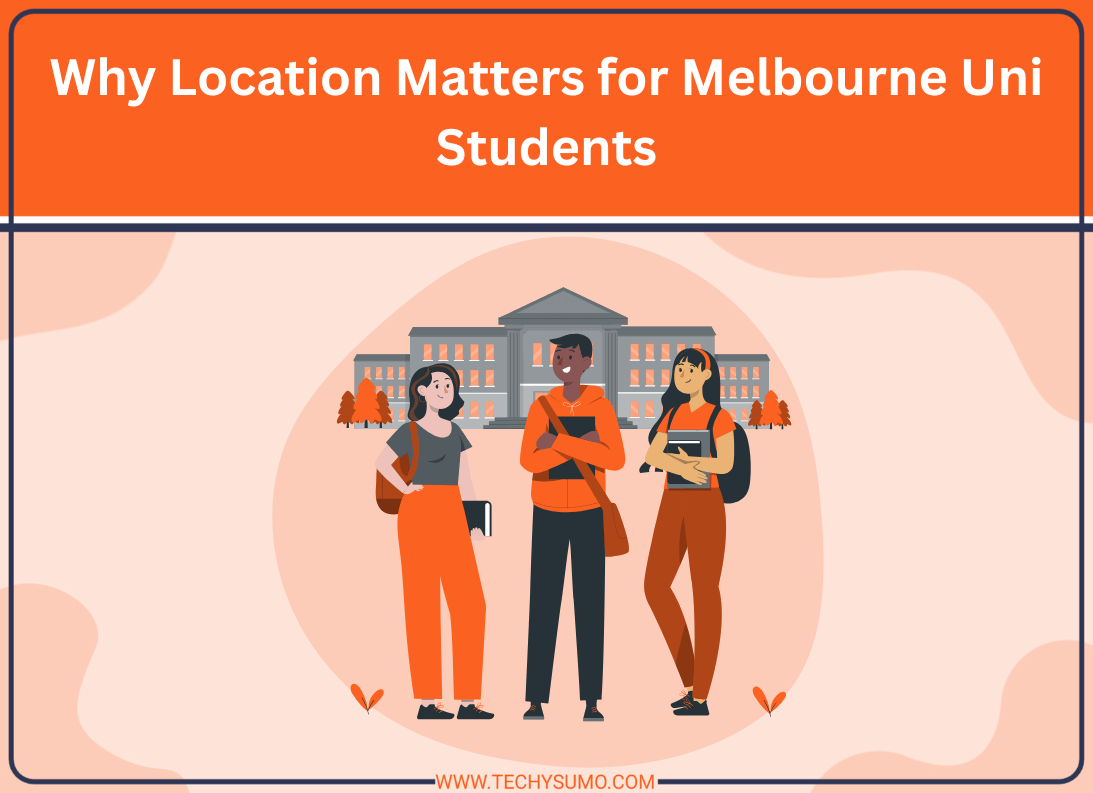For students at the University of Melbourne, choosing the right accommodation is about more than just price or style; it’s about securing a place that supports academic goals, social life, and well-being.
As one of Australia’s most prestigious universities, Melbourne Uni draws students from around the world. But once accepted, one of the most important next decisions becomes: where to live?
In this article, we’ll explore the real impact that location has on student life in Melbourne—from academic success to lifestyle, and everything in between.
Table of Contents
The Academic Advantage of Living Nearby
Proximity to campus offers a clear academic edge. Students living nearby save time on commuting, giving them more hours to study, collaborate, attend tutorials, or simply recharge. A study on student engagement found that those living on campus are significantly more involved, more likely to join multiple organisations, attend events, and hold leadership roles than their off-campus peers.
Living within walking distance allows students to be more involved without the added stress of commuting. It also encourages participation in early morning or late evening classes, which are often avoided by students living farther out due to transportation constraints.
Also Read
Access to Public Transport and City Life
Melbourne’s public transport network is extensive, but even a well-connected commute can become a burden over time. Living closer to the city centre or near major tram routes, particularly routes 1, 3, 5, 6, 16, and 19, gives students greater control over their time.
Location also opens up access to the city’s cultural life. Theatres, galleries, food precincts, and career development opportunities such as internships and networking events are all concentrated in central Melbourne. Students living nearby can explore these offerings with ease, integrating learning and personal growth with cultural enrichment.
Lifestyle and Well-being Considerations
Student life isn’t just about academics—it’s also about balance. Living near the university makes it easier to maintain a healthy lifestyle, whether that’s joining a local gym, taking a jog around Royal Park, or cooking fresh meals thanks to proximity to Queen Victoria Market.
In contrast, long daily commutes can eat into time for self-care, sleep, and socialising, potentially leading to burnout. Students who live near campus tend to enjoy better mental health outcomes, as they have more time and energy to engage in supportive communities and activities outside of their coursework.
Safety and Convenience
For international students and first-time renters, safety is a top priority. Areas close to the university, such as Carlton, Parkville, and North Melbourne, are known for being student-friendly, well-lit, and patrolled regularly. Being in these neighbourhoods provides peace of mind for students and their families alike.
Additionally, living near campus means students can easily return home between lectures, grab lunch, or pick up materials without a long detour. This convenience plays a huge role in reducing daily stress and improving focus.
Building Social Connections
University is as much about building lifelong friendships as it is about academic achievement. Students who live nearby, like those who live in Iglu properties next to Melbourne University or those living near Monash University, often find it easier to connect with peers for both study groups and social events. Shared housing, student accommodation complexes, and local cafés become natural meeting points.
These informal connections contribute to a sense of belonging, which is particularly important for international students adjusting to life in a new country. Local accommodation supports integration into student communities, university clubs, and volunteer groups, all of which are essential for a fulfilling university experience.
Close to Campus, Closer to Opportunity
Choosing where to live during university is one of the most impactful decisions a student can make. For Melbourne Uni students, location significantly influences academic performance, social engagement, safety, and well-being. While it’s tempting to focus solely on costs or aesthetics, it’s worth considering how the right location can make all the difference—today and throughout your university journey.






